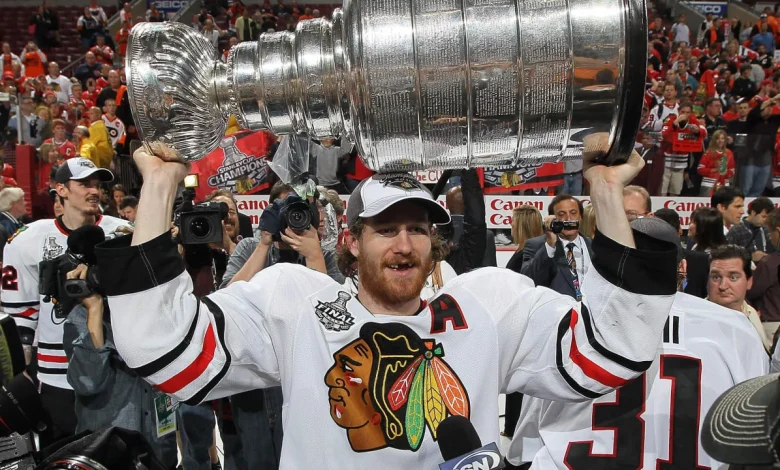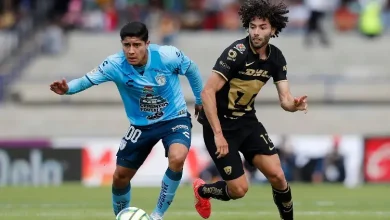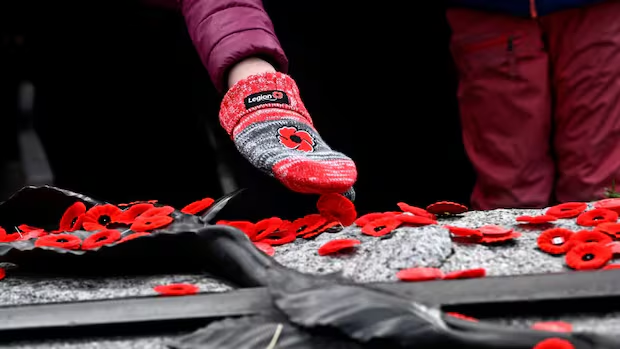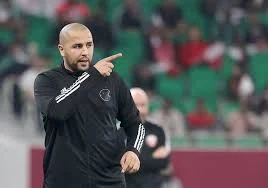Keith had ‘big engine’ on road to Hall of Fame in 1st year of eligibility

Keith was also very meticulous. When he announced his retirement in Edmonton on July 12, 2022, he thanked, among others, the trainers, saying “I know you put up with a lot, and I appreciate that.” From sticks to skates, Keith made sure everything was exactly how he wanted it.
“‘Duncs’ had 60 pairs of skates and had to bring every pair of them when we went on the road in the playoffs,” said Anaheim Ducks coach Joel Quenneville, who guided Keith and the Blackhawks to the three Stanley Cup championships. “He was finicky, a little bit, with his skates, but he liked to play and when the game started, we liked to play him a lot more than probably he thought he’d be playing a lot of nights. He just loves the game.”
That love of the game started in youth hockey, where Keith made an impression on future teammates, including Patrick Sharp from 2005-15 and 2017-18.
“I always heard about this kid who’s two years younger than me who’s from Fort Francis (Ontario) and was going to tear up Thunder Bay in our leagues,” Sharp said. “He certainly showed me that as a young age.
“Going back to when he was 11, he was the smallest guy on the ice in a game that was really physical and violent back in the 90s when he was growing up. The crack against him when he was drafted was he was too small, and he wasn’t going to be able to handle the pro game. He kept proving people wrong every step of the way. All the way until the end of his career, he was getting better at certain things.”
Keith was known for his offense playing with Kelowna in the Western Hockey League but started to become a more well-rounded defenseman in Norfolk, the Blackhawks’ American Hockey League affiliate, from 2003-05. His ability to play big minutes was always there.
“The first couple of years in the minors, back when we were still playing three (games) in three (days), he’d be excited to play that first one,” said Trent Yawney, Keith’s coach in Norfolk and Chicago, the latter from 2005-07. “He’d be all over the ice, the second he’d calm down and the third he’d play his best when everyone was dead.
“I use Dunc quite a bit in terms of referencing that he did spend some time in the minors and he wasn’t the finished product by any means (early in his NHL career), but Dunc was a true pro. He trained and he ate properly, and he was a freak. He had that ability to stay on the ice for long periods of time and not get tired.”
Keith said he just always had, “a big engine.”
“Not that I wasn’t tired, because I definitely felt I was hit by a bus after some games,” he said. “Especially when you play those long playoff games, where you’re going into overtime, it can be pretty grueling. The recovery and after comes into play and conditioning.”
Keith was one of several young prospects determined to get the Blackhawks back to prominence in the early 2000s. One was forward Jonathan Toews, who joined them in 2007-08. Keith had an impact on a lot of teammates including Toews, who was named Blackhawks captain July 18, 2008, and signed a one-year contract with the Winnipeg Jets on June 20 after two seasons out of the League.
“I’d say a lot of my challenges and my growth experiences, whatever you want to call them as a young captain, came from being around guys like that,” Toews said. “Guys like he and ‘Sharpie’ really held me accountable in certain areas. He’s as smart as he is talented and he was more dedicated to the game of hockey than anyone I know. He was always the guy who was researching things, training, recovery, health stuff. I learned a ton from him in so many ways.”
Keith was a quick, aggressive defenseman, which is why his pairing with Seabrook, more of a stay-at-home player, worked so well for so long. The two, who lived together in their early days in Chicago and have remained great friends, just meshed.
“We both supported each other out there and understood how to be an outlet,” Keith said. “That and combination of his strengths, which was his passing ability and vision out there and his size and strength, too, allowed me to flourish and play my game. Just being able to jump into the play, and I knew he would be able to read it and make any sort of adjustment he needed to make.”
Keith is still involved in the game, coaching his 12-year-old son Colton, who’s also a defenseman.
“The apple doesn’t fall far from the tree,” he said.
It’s been a long but wonderful hockey trek, and his induction into the Hall of Fame is truly humbling.
“It’s such a huge honor and one that I’m extremely proud of,” Keith said. “It was a slow transition, I feel like. It was a steady progression where, for me, I just wanted to get better. I wanted to be in the NHL, and it was one step at a time.”





